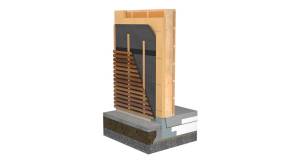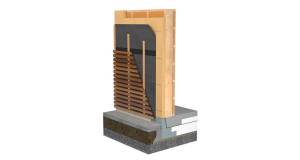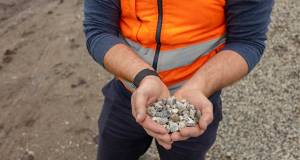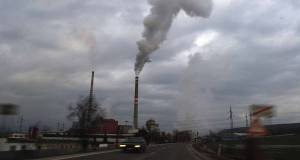carbon emissions - passivehouseplus.ie
Planning guidance to cut carbon emissions previewed at IGBC conference
The implications of planning on Ireland’s carbon emissions and the importance of building climate-safe homes were discussed at the Irish Green Building Council’s (IGBC) annual residential conference, Better Homes.
Tackling carbon emissions with Passive EcoWall
Carbon emissions originating from the construction and operation of buildings in Ireland constitute a significant portion of the country’s overall emissions, amounting to 37 per cent.
Recycled aggregate cuts carbon emissions by 95 per cent, EPD shows
Integrated Materials Solutions (IMS) has published the first environmental product declaration (EPD) in Ireland for an aggregate product, for its Greenstone recycled aggregate, the first construction product of its type in Ireland. The EPD shows that Greenstone has a carbon footprint of just 5 per cent that of virgin aggregate.
Ireland’s emissions continue to exceed carbon budget — EPA
The Environmental Protection Agency's latest figures show that Ireland exceeded its carbon emissions budget in 2018 for the third year running.
Ireland's climate action plan: just business as usual?
The government's new climate action plan does not show the level of committment needed to really reduce Ireland's carbon emissions, says Irish Green Building Council CEO Pat Barry.
Wales votes to cut emissions 80%
The Welsh assembly has voted through new legally-binding carbon emissions targets for the country. The targets bind the country to reduce emissions by 80%, relative to 1990 levels, by 2050.
The slow, heavy gears of deep retrofit start to turn
At SEAI's 2018 deep retrofit conference, there are signs that action to overhaul Ireland's outdated, inefficient building stock is gradually moving forward
Ireland’s energy roadmap — have your say
The Minister for Communications, Energy and Natural Resources launched the energy policy green paper for Ireland on May 12, marking the beginning of a ten-week public consultation on the future shape of Ireland’s energy policy.
Irish Kyoto target forecasts out of date, says Cuffe

NEW PROJECTIONS for Ireland’s Kyoto targets published barely a fortnight ago may already be out of date, Green Party TD Ciaran Cuffe has said.
Gore optimistic that world will agree deal on climate change

Al Gore, the former US vice-president, delivers an upbeat assessment of the global response to climate change today, saying he believes a "political tipping point" has been reached which will enable leaders to avert environmental catastrophe.
More bad news on climate change expected

More bad news on climate change is expected as more than 2,000 climate scientists gather in Copenhagen. They will be trying to pull together the latest research on global warming ahead of political negotiations later in the year.
Thinking Caps

Much of the debate on reducing international carbon emissions has focused on the extra cost of making the necessary cuts to slow the onset of climate change. According to Richard Douthwaite, the Irish Government is considering introducing Cap and Share, a system which would actually earn ordinary Irish people money for reducing emissions.
How low can we go?

As our recognition of the problems of dwindling fossil fuel supplies and climate change grows, the need to reduce the energy consumption and carbon emissions of our homes becomes increasingly apparent. Leading energy consultant Patrick Waterfield describes why and how we should switch to zero heating homes.









